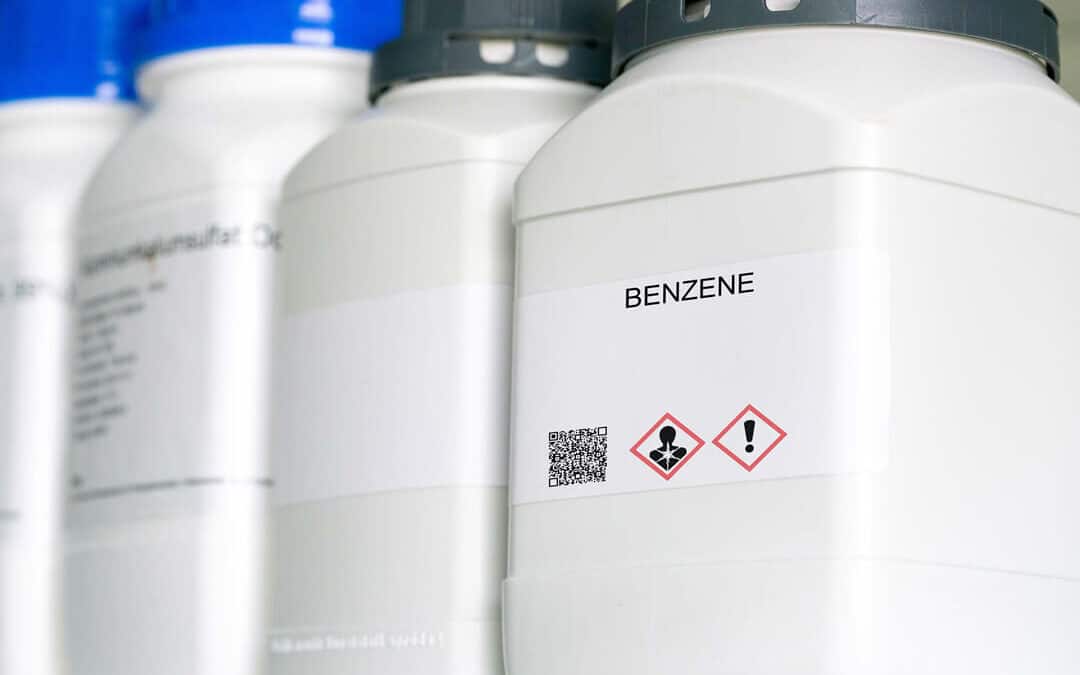Summer is a time when you want to spend more time outdoors and in the warm sun. However, it also means being exposed to the sun’s UV rays, which increases your chances of developing skin cancer if overexposed. For decades, dermatologists have strongly encouraged the use of sunscreen over any exposed area of your body, with reapplying every two hours, if you are going out to work or spending the day under the sun.
But, recent studies done on several sunscreens revealed they contain large amounts of a chemical called benzene, which is known to also cause cancer.
What Is Benzene?
Benzene is an oily, colorless chemical that develops both naturally and through man-made processes. Benzene is also naturally present in the refining of crude oil and gasoline, and the smoking of cigarettes. As for man-made processes, benzene is one of the most used chemicals used in the production of other products, such as
- Plastics
- Resins
- Synthetic fibers (i.e. nylon)
- Synthetic rubber (i.e. tire manufacturing)
- Lubricants
- Paint thinners and dyes
- Detergents
- Pesticides
The Dangers of Benzene
Because benzene is produced naturally by common occurrences such as exhaust from motor vehicles using gasoline or the smoking of cigarettes and because it is used in the production of products, we come in contact with regularly; we all have likely had exposure to benzene. But, scientists and government regulatory organizations have deemed these exposures as low-level, short-term exposure.
It is long-term, high-level exposure to benzene that causes great concern. This type of exposure to benzene can cause cancer according to the U. S Centers for Disease Control and Prevention and other agencies such as the World Health Organization. The National Institute of Occupational Safety & Health (NIOSH) regulates the exposure to benzene by workers in industries where benzene exposure is prevalent. According to studies by NIOSH, workers in those industries who have experienced high-level exposure to benzene over a long time have shown to have an increased risk of developing cancers such as
- Acute Myeloid Leukemia (AML)
- Lymphocytic Leukemia (ALL)
- Chronic Lymphocytic Leukemia (CLL)
- Multiple Myeloma
- Non-Hodgkin Lymphoma
Because of this danger to exposure, NIOSH recommends the wearing of special protective equipment for those who expect exposure to over 0.1 ppm of benzene at least 10 hours per day or 1 ppm 15 minutes per day.
Dangers of Benzene in Sunscreen
After reading the above information about benzene and its dangers, you may wonder what it has to do with sunscreen. You may question if benzene is in the production of sunscreen. The answer should be no. But, Valisure LLC, an online pharmacy and lab, studied nearly 300 sprays and lotions in May 2021 and found that 27products tested contain benzene.
It is unsure why the benzene showed up in so many sunscreens, especially as their manufacturers have so far denied the use of benzene in production. Some scientists believe it could be a byproduct of producing sunscreen using certain raw materials such as alcohol and aloe vera.
You could relegate the exposure to benzene from using sunscreen to just another low-level, short-term exposure, as with many other products. But, the Valisure study revealed that some batches of the sunscreen they tested had benzene levels above 6 parts per million (ppm). That number is six times higher than the benzene level we just discussed the NIOSH recommending workers to wear special protective equipment if they get exposed more than 15 minutes per day. As we said, the NIOSH has suggested workers take such precautions because of the link between long-term, high-level exposure to benzene and cancer. Granted, most worker exposure is by inhalation and sunscreen on the skin, but studies have shown chemicals absorbed in the skin can stay in the bloodstream for long periods as well. So, it is plausible to think exposure to benzene in sunscreen on repeated occasions could and has caused cancer.
Legal action against Sunscreen Manufacturers
Since the release of the Valisure research, the FDA has been looking into how benzene ended up in those sunscreens and investigating claims of benzene in sunscreen causing cancer. Also, some manufacturers, Johnson & Johnson being the first, have voluntarily recalled certain types of their sunscreen. But, this voluntary recall does not lessen any of the manufacturers’ responsibility for any harm to exposure to benzene in their products caused before the recall.
Those manufacturers could face claims of
- Negligence
- Product Liability
- Manufacturing Defect
- Failure to Warn
- Fraud/Deceptive Trade Practices
Those proven to have developed cancer because of exposure to the recalled sunscreens may recover compensatory damages for:
- Medical bills
- Lost wages (present and future)
- Pain and Suffering
Getting Help If Exposed to Benzene through Sunscreen
if you have or have had cancer that you think could have been caused by your use of sunscreen, you could file a legal claim against the sunscreen’s manufacturer. Doing so would be a big undertaking, but with the right legal assistance, you could get the compensation you deserve. An experienced personal injury lawyer can guide you through every process needed to prove your claim.
Brock & Stout’s personal injury attorneys have over 25 years of experience helping clients with such claims against manufacturers. We always worked hard to help our clients get the best compensation for their claims. We will do the same for you. Contact us for a free consultation and let our family help your family.

